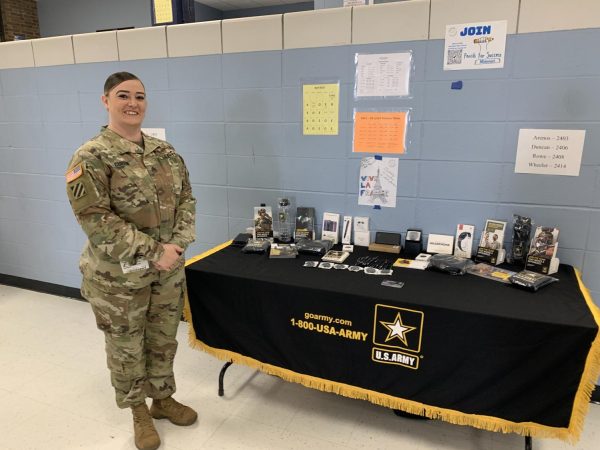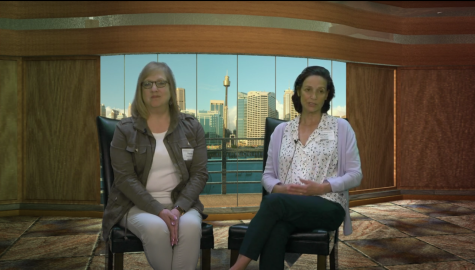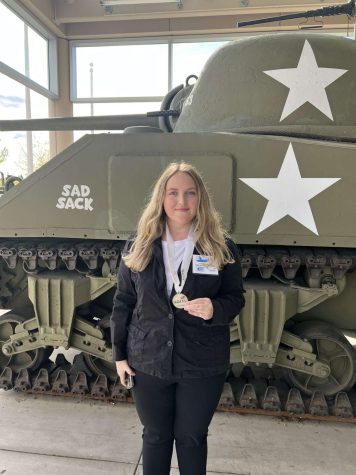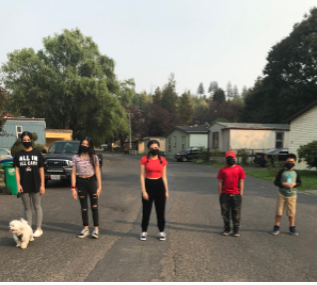Students From Over The Sea
Many of the foreign exchange students at Milwaukie High School have put a tremendous amount of effort into experiencing what those born in the USA are given freely. The question that comes to mind is, “What has their experience coming here has been like and what kind of culture shock might they be feeling?” Rafael Moreno, 15, is from Madrid, Spain. Also from Spain is Raquel Canton Garcia, age 16. She grew up in Almeria, which is 6 hours from Madrid. Moritz Kügler, 16, is from Hannover, Germany. Cleo Rogers, 16, is not part of the exchange program, but she moved here from Norwich, England to live with her father.
As far as culture and social environment goes, most of these students said it was as they expected. Growing up with so much TV and film from the US, they got somewhat of an idea of what school would be like, but the module classrooms surprised both Raquel and Rafael. With the construction of MHS’s new building, the students are attending class in a, so called, “Modcity”. For Moritz, Raquel, and Rafael, English was not their first language. They all started to learn it when they were still fairly young, but even so, coming here had put up a little bit of a language barrier. Moritz and Rafael, who are living with the same host family, experience many challenges, arising from the fact that they both have different first languages. Raquel speaks very clear English, but says “Sometimes I feel like people think I’m dumb just because I have an accent.” For the first week that she was at MHS, people would assume that either she couldn’t speak English or that she might not be as smart since English was her second language.
One aspect of our school that stood out most was the enthusiasm surrounding sports and other extracurricular activities. Raquel, Moritz, and Rafael explained how their schools were different from those in the US, and the general consensus was that the energy behind sports was much more prominent at MHS. In Spain and Germany, if you want to join a sports team, you must do it through clubs with kids from other schools. These clubs practice much less frequently, so Moritz, who is on the soccer team, and Rafael, who is playing football, thought the intensity of sports was surprising. Cleo responded to this question by saying, “It’s quite different, where I’m from you go to high school from ages 11-16.” She also said that at the end of high school in England, you take tests called the GCSEs, which determines your overall grade. From there, you can either go into an apprenticeship or take A-levels ( A-levels are usually 3 advanced classes that lead to university, work, or some kind sort of further learning).
After being asked what the most shocking thing they had witnessed is, Raquel answered that people screaming in the streets had been new to her. Cleo’s answer stirred up a surface level issue that is very present in our country right now. She said, “The normalization of a lockdown system in case of a shooting. This is strange for me because it isn’t a reality in Britain.” Despite the cynical jokes and normalization of school shootings, this was a danger that none of our foreign exchange students had to worry about before coming to the US. While the foreign exchange program can be very beneficial and worth the risk, many students, even ones from the US, have to live with the knowledge every day that their school could be a target.
These teenagers from over the Atlantic came thousands of miles to experience our ordinary lives. MHS is proud to have these students and so many more, not mentioned in this article. Moritz came here so that he could improve his English and explore new things. Rafael plans on going to college to become an engineer. Cleo moved so she could be with family. Raquel is going to go to college and will follow where life takes her, most likely ending up in either Spain or the US. Raquel was asked if she had anything else to say and she responded with advice for all of her peers born here in the US. “I would say that if you’re not an exchange student and you’re reading this interview you should appreciate what you have and you should get really involved with the high school because it’s so much fun and not everybody can do that. I have had to change my family and my friends for a whole year just to have what you have in your usual life. So appreciate it.” She encourages students to take advantage of the opportunities they have here and make the most out of the four years that we get to go to high school. Reach out and make connections because school is about more than just education. This is proven by the fact that our foreign students could have gone to school anywhere but they chose this specific experience.








